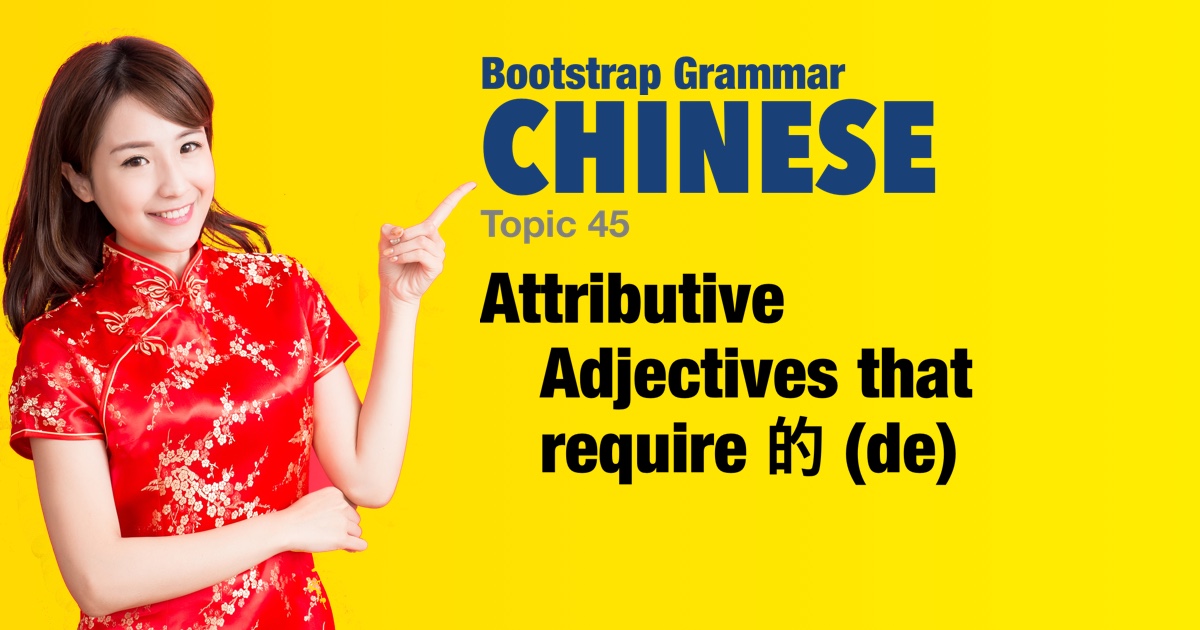Chinese grammar - Attributive Adjectives that require 的 (de) |
|||
|
|||
In Chinese, most adjectives that are just one character and are not being emphasized can simply be attached to the noun (as we saw in the previous topic). But when the adjective is multiple characters or is being emphasized, then 的 (de) is inserted between the adjective and noun. Note, however, that there are some single-character adjectives that sometimes require 的 to maintain fluency. - These include 新 (xīn), 好 (hǎo) and 坏 (huài). Note also that 的 has several other uses in Chinese. Broadly it serves to attribute, modify or unify, creating clear relationships between elements in a sentence. |
| Examples: | |
|
红色的苹果
hóngsè de píngguǒ red apple
|
|
|
漂亮的花
piàoliang de huā beautiful flower
|
|
|
年轻的老师
niánqīng de lǎoshī young teacher
|
|
|
蓝色的车
lánsè de chē blue car |
|
|
快乐的孩子
kuàilè de háizi happy child
|
|
|
聪明的学生
cōngmíng de xuéshēng smart student
|
|
|
白色的狗
báisè de gǒu white dog |
|
|
坏的天气
huài de tiānqì bad weather
|
|
|
新的书
xīn de shū new book
|
|
|
坏的机器
huài de jīqì broken machine
|
|
|
好的天气
hǎo de tiānqì good weather
|
|
|
那是一个好的问题。
nà shì yí gè hǎo de wèntí. That is a good question.
|
|
|
这是一个大房子。
zhè shì yí gè dà fángzi. This is a big house.
|
|
|
我有一只小猫。
wǒ yǒu yì zhī xiǎo māo. I have a small cat.
|
|
|
大的车很快。
dà de chē hěn kuài. The big car is fast.
|
|
|
我们有好的座位。
wǒmen yǒu hǎo de zuòwèi. We have good seats.
|
|
|
他们有很好的座位。
tāmen yǒu hěn hǎo de zuòwèi. They have very good seats. |
|
 |
|




